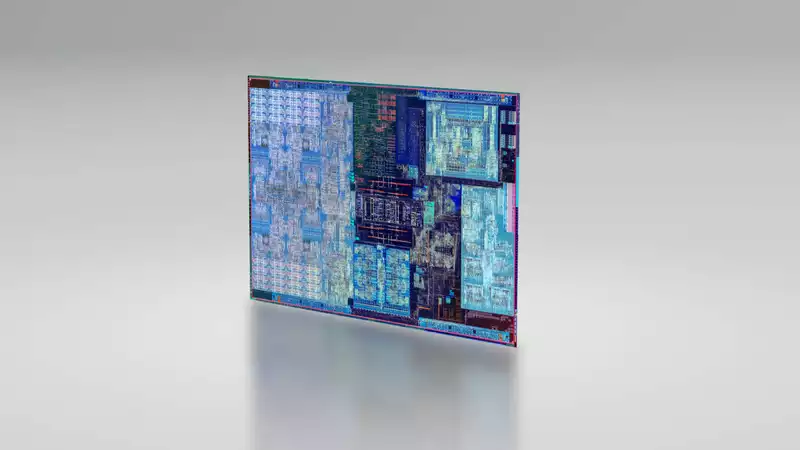Intel's next generation processors have already begun performance testing, with the Intel Alder Lake platform appearing in the SiSoft Sandra database. This is the CPU generation that is expected to appear in 2022, after the 11th generation cores, aka Intel Rocket Lake, appear in our PCs within the next year.
So many lakes, so little time ... But what makes this lake special? Honestly, I don't know if this is special or a potential nightmare. Alder Lake will be bringing Intel's hybrid technology to the desktop. This is the technology found in the new mini-Lakefield mobile device, which pairs one large standard CPU core with four relatively small CPU cores.
This is also the name of a technology that allows logic to be stacked within the processor, meaning that the compute layer can be placed on top of a base layer such as PCIe or USB controllers. Intel can also mix CPU architectures, processes, and I/O generations.
Intel Alder Lake chips appear to be just beginning to be evaluated, as SiSoft (via TUM_APISAK) now has an S-series chip (for desktops). Currently it appears to be GPU testing only, using the same Gen12 graphics as the upcoming Tiger Lake and Rocket Lake generations, with a 32 execution unit configuration; the top Tiger Lake product will have up to 96 EUs, but as a mobile chip, the disk This layout makes more sense for a mobile chip than for a desktop chip, which is more likely to be combined with a discrete GPU.
This early appearance does not seem to concretely support the early arrival of Alder Lake generation processors, as the Gen12 graphics silicon in question is running at only 500 MHz. in a recent Rocket Lake entry on SiSoft, proprietary 32 EU iGPU running at 1,150 MHz, it is more likely that this is a release candidate chip rather than an early engineering test sample.
Nevertheless, the fact that it is appearing in public databases at such an early stage may mean that this 12th generation range could be released in 2021 rather than 2022 as previously expected. Since it is not yet certain (unless it is "something big" that Intel is teasing for a September 2 announcement), it is possible that two desktop generations will be released in the same year. That might suggest that Rocket Lake will be another Broadwell-like CPU generation that barely exists.
Previous Alder Lake leaks have envisioned a different configuration for the desktop chips, with a big.LITTLE design with eight Golden Cove cores and eight Gracemont cores on the top processor. Golden Cove is an evolution of the Sunny Cove core architecture introduced in Ice Lake and is expected to be the basis for 14nm Rocket Lake chips. which had a much higher IPC than the current Core architecture within, but still struggled at higher frequencies in the 10nm process.
With Alder Lake, this problem appears to have been or will be resolved, as the 10nm Golden Cove core promises further single-threaded IPC gains. For Gracemont, Intel's low-power Atom processor's next-generation architecture, which is expected to offer higher frequencies and unique IPC improvements over the previous generation.
But why would Intel's next generation of desktop chips use the controversial big.LITTLE design? Those offset 8+8 designs will not be able to compete with dedicated 16-core chips like the AMD Zen 3 Ryzen 9 4950X, which uses the same full-featured cores across the board.
Nevertheless, Intel will nominally be able to compete in the core count battleground.
There must be a better computational reason behind Intel's concerted move toward this offset configuration, beyond the marketing numbers argument. The big. LITTLE designs seem complicated when it comes to software accessing silicon in the most efficient way, and there is a lot of resistance to this design by industry commentators. But Intel has a lot of smart silicon engineers, and while the company may have made some missteps in the face of AMD's rise to prominence, it seems unlikely that Intel's CPUs will be on a perpetual downward spiral by comparison.
Until we see a little more of what Intel is trying to do with hybrid technology on the desktop, it will be difficult to say what impact Alder Lake is going to have, but suffice it to say that it will be a very different CPU from the Intel processors of the last few years. But suffice it to say that it will be a very different CPU from the Intel processors of the past few years. And it's not just because of the rectangular shape that the new LGA 1700 socket will impose on the chip.
.

Comments